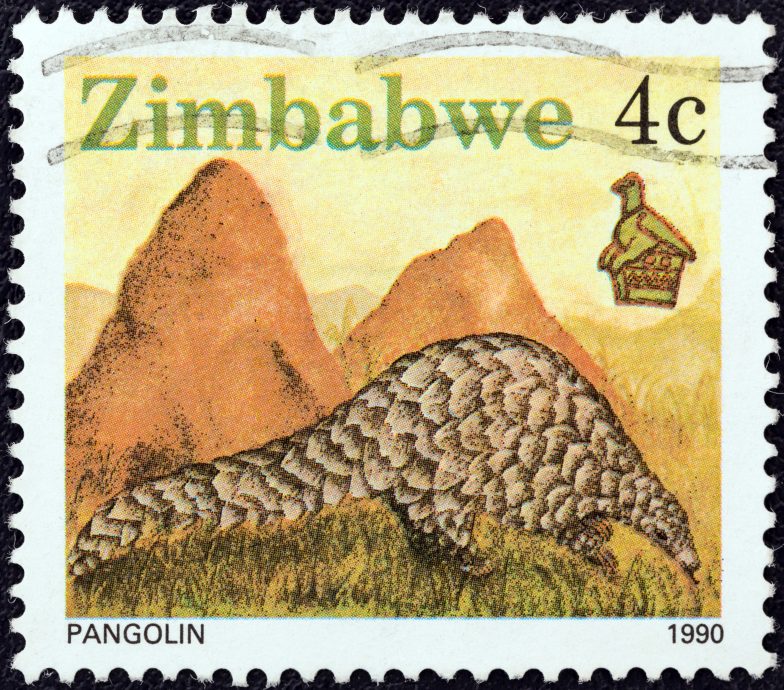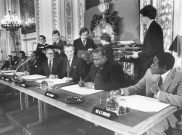After Mugabe
Editor’s note: This is the last post in a series (I and II) by Theodore Dalrymple on Zimbabwe and the fall of Robert Mugabe.
It was a humbling experience to read what Pierre Ryckmans, later to be famous as the sinologist Simon Leys, wrote when he was only twenty years old. He had voyaged solo through the Belgian Congo not long before its independence, a vast territory of which his uncle, of the same name, had once been a famous governor-general. Ryckmans’ reflections on his journey have lost none of their pertinence in the sixty years since he wrote them, and go straight to the heart of the matter with unrivalled concision:
In outline, we might say that [the Africans’] ambitions push them to reject and become Europe at the same time. (When I speak of Europe, I mean the Europe that they know, that is to say the Europe in Africa). They want to be like these powerful men who humiliate them; they want to be those whom they do not want. . . .
It was for this reason that Mugabe, a highly intelligent man, was a revolutionary and a conservative at the same time. He wanted everything to change and everything to stay the same (but with himself in charge). This is symbolised by the two modes of address by which he was referred to in the same breath: His Excellency and Comrade: His Excellency the President, Comrade R. G. Mugabe.
Which was he, Excellency or Comrade? He was like one of those drawings that can be seen as a duck or a rabbit, but not both at the same time.
The Excellency side of him he drew from the colonial past. Colonial governors were always His Excellency, and it is striking how much of the ceremonial side of the new republic, the dress uniforms of the army and so forth, remained so resolutely modelled on the British. The Zimbabwean judiciary still wears the splendid, if archaic, robes and wigs of British courts; it is probably more attached to them than is the British judiciary.
Mr Mugabe’s tailoring was based on his idea of what an upper-class Englishman would wear, with no concessions whatever to the climate. Mad dogs and first Presidents of Zimbabwe go out in the midday sun. (He was not alone in this: the first President of Malawi, formerly Nyasaland, His Excellency the Life-President, Ngwazi Dr H. Kamuzu Banda, who had been a thorn in the colonial authorities’ side, always dressed like a 1950s British stockbroker, apart from his fly-whisk. Milton Obote of Uganda was much the same, and even Idi Amin’s uniform could have been British, with practically no adjustments.)
Mugabe’s notion of wealth was that of a landed aristocrat: it was what one had a right to through inheritance. In his case, however, confiscation took the place of inheritance, but certainly hard work and accumulation in the ordinary sense played no role in his mental economy.
Many men hate what they admire, especially when they admire it from afar and it is unattainable for a long time. When they are in a position to do so, therefore, they both imitate and destroy, crushing with delectation those who kept them for so long from the enjoyment of what they admired. They revenge themselves on those whom they envied and admired.
When Ryckmans spoke of humiliation, he put his finger on a much-under-estimated factor in the revolt against colonialism, and the history of both anti-colonialism and post-colonialism. As is so often the case with revolts, those who led the revolt in Africa were not themselves the worst off, far from it; they were the educated few who, instead of being incorporated into the colonial elite as partners, as they thought their due, were daily humiliated by people whom they believed to be their inferiors. To many a colonial white, an African with a doctorate would still be a boy, in the technical colonial sense of the word, merely by virtue of his race. A white would often speak disdainfully of Africans in front of them, even though he knew the Africans understood his language. I do not think that Ian Smith was personally so insensitive, but many of the people who elected him were.
This type of repeated and often daily humiliation is a wound that very rarely heals (I am not sure I would ever have got over it had I experienced it. I rather think I would not.) It is all the worse when you admire the people who are humiliating you by constant small humiliations that demonstrate that they do not consider you their equal, or even fully human. Small humiliations of this type are worse than great but abstract injustices. It is humiliation, in my belief, and not the unjust distribution of land, that galled Mugabe and gave rise to his Comrade side.
Marxism was attractive to His Future Excellency the Comrade mainly because communism was what the settler regime most feared and hated. As his later conduct was amply to demonstrate, its egalitarian distributionism attracted him not at all, except as a useful and necessary rhetorical instrument. Indeed, after his enthronement, his Zimbabwe began to make Smith’s Rhodesia look like an ideal Rawlsian state. If I am right, flattery by western powers instead of criticism might have made him less intransigent. More nauseating hypocrisy has, after all, been accepted as advisable or wise.
There is an obvious problem with the succession to Mr Mugabe, for no despot acts alone: and senior members of his political party, the ZANU-PF, from whom the succeeding government must be formed, are all accomplices and beneficiaries of his misrule, as guilty as he. As Mao is to the present government of China so, for a short time at least, Mugabe must be to the future government of Zimbabwe. But with the passage of time, the kind of psychological complex from which Mugabe suffered, and which explains if it does not excuse some of his behaviour, will, as the colonial past fades from living memory, no longer exert its baleful influence on anyone. Africa will be free at last both of colonialism and anti-colonialism. Then there will be no more His Excellency, Comrade…: just ordinary, corrupt authoritarian regimes, perhaps, and possibly a functioning democracy here and there. A great improvement.



